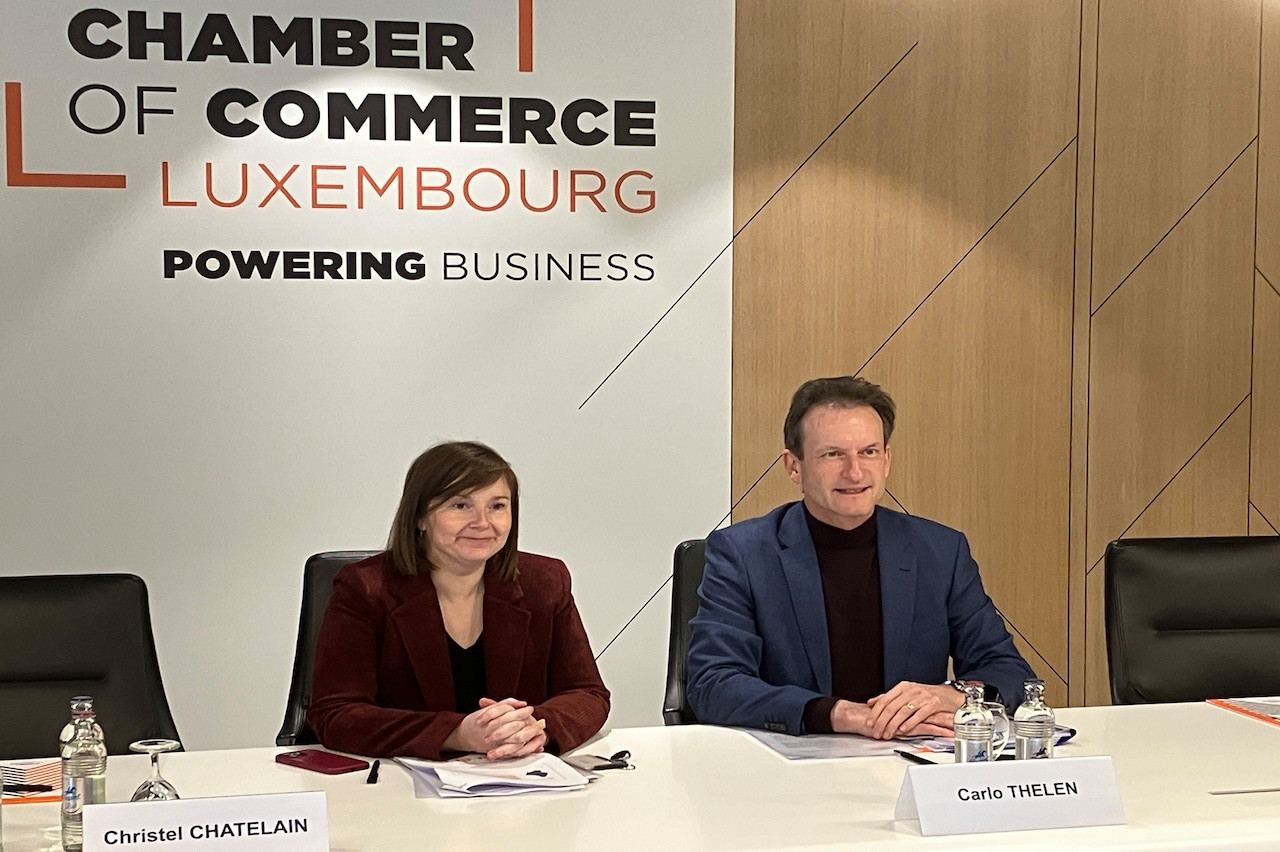At its traditional end-of-year press conference, the Luxembourg Chamber of Commerce listed the external factors destabilising Luxembourg’s growth model. It’s a list that makes the head spin: geopolitical instability, a European Union faced with populists, internal conflicts and misinformation and incapable of taking decisions, demographic imbalances, environmental crises, climate scepticism and economic instability. “These are crises that are no longer temporary,” says , director general of the Chamber of Commerce. On the economic front, he is concerned about the disconnect between global growth and international trade. “This slowdown in globalisation calls into question our growth models,” he continues. Thelen fears that “this decoupling could be accentuated by Donald Trump’s protectionist policies.” It’s a disconnect that becomes more pronounced with each crisis.
Growth breakdown
Against this backdrop, Thelen notes that Luxembourg’s growth is stalling: 2.7% in 2025 and 2% in 2026. “These levels are below the historical average of 3% between 1995 and 2023.” And to make matters worse, the lack of growth in Europe is not a good thing for Luxembourg, “because 65% of all our exports go to our neighbouring countries, and 80% of all our exports go to the European Union. We need to diversify the destinations for our goods and services,” he explains.
Thelen insists that this is a worrying environment for businesses. “Even though, according to the latest results of the economic barometer, entrepreneurs are still hopeful.” Not least because of the stability of the government: “a government that has a clear vision, that has introduced various programmes to support the economy and regulate the housing crisis, and that is tackling unnecessary procedures.” Entrepreneurs see the challenges for 2025 in the lack of labour (the biggest problem for 59% of them) and its cost (58%). Problems linked to financing conditions (33%), regulatory constraints (29%), affordable access to raw materials and energy (23%) and disruption to supply chains (8%) are a distant second.
Artificial intelligence and defence
While the Chamber of Commerce says it is satisfied with the government’s priorities and action, it is encouraging it to go further to protect itself against all the sources of instability cited and “which seem to be here to stay.” And this in several directions.
The first of these is to restore competitiveness and productivity. “Over and above the structural reforms that we have been calling for over the years, particularly in terms of cost competitiveness, there is an urgent need to stimulate productivity through innovation,” says Christel Chatelain, director of economic affairs, who sees the need to invest in artificial intelligence as “a lever that could boost productivity.” AI is also seen as an important source of economic diversification, as is defence. By 2023, Luxembourg must increase its defence spending to 2% of GNI--and perhaps even to 3%, according to Chatelain, in the light of Trump’s return to power. This will eventually amount to more than €1.4bn a year. A windfall that the chamber hopes to see invested in the national economy.
Attractiveness at the heart of reforms
The restoration of competitiveness and productivity will also depend, in the chamber’s view, on the continuation of the policy of administrative simplification. On this point, the Chamber of Commerce has launched a survey among its members to identify concrete areas for improvement. “These will be communicated to the government in 2025.”
The Chamber of Commerce also stresses the need to remain attractive to talent. It has identified two “bottlenecks” to this attractiveness: a labour market that is too rigid and a glaring lack of housing.
The major political issue of 2025 will be the Luxembourg social model. And more specifically, for the Chamber of Commerce, its sustainability. Sustainability, in the name of which it is urging the government to commit to a three-pronged reform of the pension system, long-term care insurance, and sickness and maternity insurance.
This article was originally published in .
